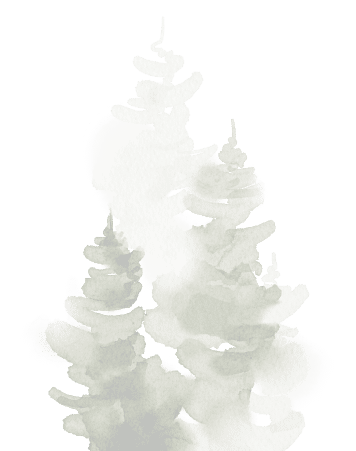Grief Treatment Center
Grief & Loss Treatment Center in the San Jacinto Mountains



Understanding Grief
Grief is an intricate and deeply personal experience that varies significantly among individuals. It’s a natural response to losing someone or something that holds great value. However, the impact of grief extends far beyond emotional distress; it can profoundly affect both physical and mental health. Research has shown that after a major loss, such as the death of a spouse or child, up to a third of those most directly affected may suffer detrimental effects on their health. Bereavements notably increase the risk of death from heart disease and suicide and can cause or contribute to a range of psychosomatic and psychiatric disorders.
The journey through grief is unique to each person, with no predefined path or timeline. Recognizing that grief can lead to significant health challenges emphasizes the importance of seeking support, especially for those experiencing prolonged or severe symptoms. Wood Dragon Inn specializes in navigating the effects of grief through personalized, holistic treatment that addresses the emotional, physical, and spiritual dimensions of grief.
What is Prolonged Grief Disorder or Complicated Grief?
Prolonged Grief Disorder (PGD), previously known as Complicated Grief Disorder, is recognized as a condition where an individual experiences intense grief that persists for an extended period, significantly impairing their ability to function in daily life. This condition is characterized by a prolonged and profound mourning that does not ease over time, unlike the typical process of adaptation and healing that usually follows a loss.
Key features of Prolonged Grief Disorder include:
- Persistent longing for or preoccupation with the deceased or the lost object is often accompanied by intense emotional pain, such as sadness, guilt, anger, or denial.
- Difficulty engaging in life or envisioning a future without the presence of the deceased.
- A sense that life is meaningless without the lost person or object.
- Avoidance of reminders of the loss due to the intense pain they evoke, or conversely, an excessive focus on reminders of the deceased.
- Impairment in social, occupational, or other important areas of functioning, where the grief reaction is more intense or prolonged than socially or culturally expected.
The diagnosis of PGD is typically considered when these symptoms persist for at least six months following the loss, acknowledging that the timeline can vary significantly among different cultures and individuals. The distinction between normal grief and PGD lies in the intensity and duration of the grief, as well as the level of functional impairment it causes.
Treatment for PGD may involve therapy, such as cognitive-behavioral therapy (CBT) tailored to grief, which can help individuals process their loss and gradually rebuild their lives. Support groups and sometimes medications to address concurrent symptoms like depression or anxiety can also be beneficial. Recognizing and diagnosing PGD is important, as targeted support and intervention can significantly aid in the healing process for those struggling with this condition.
If you or someone you know is struggling with prolonged symptoms of grief, help is available. Contact Wood Dragon Inn today to learn more about our residential mental health treatment program for grief and loss in Idyllwild, California.
Types of Loss
Loss triggers the grieving process, marking the absence of something or someone deeply valued and leading to adjustment and adaptation. It can manifest in various forms, each bringing its unique set of challenges and necessitating distinct approaches for navigating through the emotions that follow:
- The death of a close friend or family member
- The end of a significant relationship
- The realization that a long-held dream may never come to fruition
- Financial instability or job loss
- Loss of trust following betrayal
- Loss of autonomy due to aging or disability
- The selling of a cherished home or relocation
Understanding the diverse nature of grief and loss can help us foster empathy and compassion, guiding us in offering support to ourselves and others. Grief and loss treatment centers like Wood Dragon Inn can provide a nurturing environment where individuals can confront their grief, supported by understanding and specialized care, to navigate through their loss toward healing.
The Five Stages of Grief
The concept of the five stages of grief, introduced by Elisabeth Kübler-Ross, outlines a framework many navigate after experiencing a loss. These stages are not linear; not everyone will experience all of them or in the same order. Here’s a closer look:
Denial serves as a protective mechanism, cushioning the immediate shock of loss. In this stage, individuals may find themselves refusing to acknowledge the extent of their loss, providing temporary respite from the pain. This denial is a part of the mind’s way of ensuring that we only confront what we can handle, allowing us to gradually absorb the reality of the situation.
Anger emerges as the masking effects of denial lift, confronting us with the pain of our loss. This anger can be directed at objects, strangers, friends, family, or oneself. It’s a natural reaction to the feeling of powerlessness and injustice that loss can bring. Recognizing this anger as a normal part of grief can help in processing these feelings constructively.
Bargaining often follows as we grapple with feelings of vulnerability, trying to regain control or to find a way to mitigate the loss. This stage may involve replaying scenarios differently in the hope of a different outcome. Bargaining reflects the struggle to find meaning and to negotiate our way out of pain, even if such negotiations are with ourselves or a higher power.
Depression deepens as the reality of the loss fully sets in, leading to a period of intense sadness and reflection. This stage may involve questioning the purpose of life or the fairness of the world. It is a crucial part of the healing process, allowing us to confront and process our grief deeply.
Acceptance is the gradual understanding and coming to terms with the reality of our loss. This stage does not imply happiness or forgetting, but rather a re-adjustment to life without the presence of what we have lost. Acceptance involves redefining our sense of normal and finding ways to move forward.
The Kübler-Ross stage model of grief is undeniably popular and has provided many with a framework for understanding their grief. However, it’s crucial to remember that everyone grieves differently, and not everyone’s experience will align perfectly with this model. Grieving is a highly individual process, and there is no “right” way to navigate it. If your own journey through grief doesn’t match the stages exactly as outlined, that’s perfectly okay. What matters most is finding a path through grief that feels true and healing for you.
Symptoms of Grief
The impact of grief is all-encompassing, affecting an individual’s emotional, physical, and psychological well-being. These effects manifest themselves through a variety of symptoms. Recognizing this can aid in understanding and coping with the grieving process.
Emotional Symptoms
- Sadness and tearfulness
- Anger, sometimes directed at specific people or situations
- Guilt and regret
- Anxiety and fear
- Relief, in some cases
- Numbness or detachment
Physical Symptoms
- Fatigue and exhaustion
- Changes in appetite
- Sleep disturbances
- Physical aches and pains
- Increased susceptibility to illnesses
Behavioral Symptoms
- Withdrawal from social activities
- Neglecting personal care
- Keeping busy to avoid feelings of grief
- Carrying objects that belonged to the deceased or visiting places that were significant to them
Understanding these stages, patterns, and symptoms can provide insight into the grieving process, helping individuals recognize their grief or support others through theirs. It’s important to remember that grief is a highly individual experience, and there’s no “right” way to grieve.
Grief vs. Depression: Understanding the Difference
While grief and depression share similar symptoms, they are distinct emotional states that require different approaches to healing. Grief is a natural, healthy response to loss, characterized by feelings of sadness, longing, or emptiness due to the absence of a loved one or the loss of something significant. Depression, on the other hand, is a mental health condition that affects the way one feels, thinks, and handles daily activities. It can occur independently of any specific loss and often involves persistent feelings of sadness and hopelessness that don’t necessarily tie back to a specific event or loss.
Key differences between these two conditions include the trigger (grief usually follows a loss, whereas depression can occur without an external cause) and the duration (grief may ebb and flow but tends to lessen in intensity over time, while depression is persistent and may require professional treatment to improve).
If you or someone you know is struggling with symptoms of grief or depression, help is available. Contact Wood Dragon Inn today to learn more about our residential mental health treatment programs in Idyllwild, California.


When Should You Consider Residential Treatment for Grief?
Residential treatment is an important step, often taken when other forms of support and outpatient therapy have failed or when the depth of one’s grief feels too heavy to carry alone. Inpatient treatment for grief may be helpful for those who find their grief overwhelming and incapacitating, making it difficult to manage daily life, or who are experiencing complicated grief, where intense emotions do not ease over time.
Residential treatment programs for grief can also be helpful for those with co-occurring mental health conditions that complicate the grieving process, such as major depression or anxiety disorders. Inpatient treatment programs like Wood Dragon Inn’s grief and loss treatment program in Idyllwild, California, offer a structured environment where individuals can receive intensive therapy, support, and the opportunity to focus on their healing without the distractions and stressors of everyday life.
Why Choose Treatment for Grief at Wood Dragon Inn?
Choosing Wood Dragon Inn to help you navigate your journey to healing from grief means choosing a holistic path to wellness in the serene backdrop of the San Jacinto Mountains. At Wood Dragon Inn, we specialize in blending evidence-based treatment methods with holistic modalities like Traditional Chinese Medicine, providing a truly comprehensive approach to recovery.
Nestled within the natural beauty of Idyllwild, CA, our residential mental health facility is not just a place for therapy but a sanctuary for deep emotional and spiritual healing. Call today to learn more about our programs for healing from grief and loss in Southern California.





